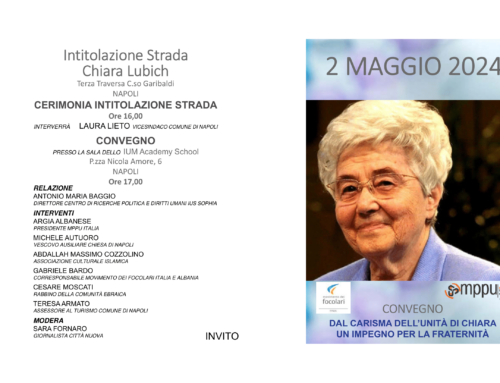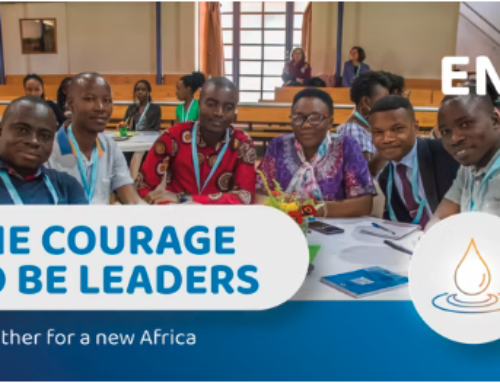Getting to know the origins and causes of conflicts, the actors currently involved and the contexts, international conditions and interactions, perspectives… is an arduous but necessary task whenever a conflict tears through history. We can ask this of institutions, but an essential step is also required of us: to open ourselves to dialogue, to step back from partisan assessments, to disarm first and foremost our thinking, in order to explore new territories.
No war brings good: to build peace, each politician must set before him or her a new landscape for thought and action.
We propose four pathways.
1) In the name of our common humanity: the violence in the Israeli-Palestinian conflict, and in other wars on the planet -such as in Ukraine, shows levels of cruelty that require us to go to the root. Our gaze must recognize, before any other facts, the broken lives of mothers and fathers, of children, of men and women, human beings like us, experiencing unjustifiable suffering. Going beyond religious, national or political identities, which history has often reinforced, it is necessary to rethink politics through the very experience of motherhood, fatherhood, sonship and friendship, in which every human being is a participant. It is these essential bonds, it is these original social forms that call us to respect every human life. Politics has as its essential task the care of society and the common home: to put ourselves on the side of mothers and fathers, sons and daughters, brothers and sisters, will guide us beyond boundaries that seem insuperable today. We must enhance, for example, established pathways of peace between mothers, fathers, religious leaders of the Palestinian people and the Israeli people, who have suffered and acted together for so long. As with any people, there is a deep bond that binds the Palestinian people to their land; different and equally deep-rooted reasons apply to the people of Israel. Yet, both peoples have shown that they are willing and able to shape real coexistence. It is the duty of their governments to listen to them.
2) Women’s voices and the culture of care: we do not want to resign ourselves to the current mechanisms of power that are run by men who deal in weapons of all kinds of destructive capabilities, where attack and defense have no measure. There are many episodes in human history when different paths have been taken, where women capable of stepping out of traditional roles are often the protagonists.
Why not focus on other tools, other languages and methodologies, on topics that have hitherto remained invisible in the public sphere, so as to open up and tread new paths? We need more than ever the contribution of “the genius of women,” of “equal alliances” between women and men acting together, to address the root of exploding violence. We appeal to women with their culture of care and recognition, of speech and encounter, a culture that has spanned the centuries, to inject a new energy into the social body, new reasons for peace. We need to listen to women’s voices to generate peace.
3) War cannot be a political tool: we recognize the failure of armed violence for conflict resolution. The times urgently demand it: politics must repudiate war in order to elaborate and adopt new norms, new tools and processes capable of a non-violent conflict transformation. It is time to leave behind primitive and failed forms of relationships between people, between peoples. The current military approach is leading to a serious imbalance that jeopardizes the sustainability of human life on the planet; the high amount of resources invested in war means the loss of fundamental resources to be invested in the present and future of humanity.
To refuse war seriously means starting with a radical analysis of economic models that – instead of acting to reduce the unacceptable inequalities that are at the root of so much violence between peoples – continue to multiply the production of weapons that fuel terrible conflicts. When the economy kills, the interests behind the hypocrisy of arms must be unmasked, and there must be a complete reconversion of production and finance.
4) Peace as a right – peace as a policy: in the name of the right to peace of all peoples, we do not hesitate to support the challenging processes of reconciliation, even incipient methods of coexistence, among peoples affected by armed conflicts. It is not enough to lay down arms: only a context of justice, development and sharing can support the path to peace among peoples, which cannot be built by ignoring neighboring peoples.
There is a need to sow a fraternal political culture that transcends national borders and promotes friendship among peoples, to arrive at “loving another’s homeland as one’s own,” a prophetic program of international politics indicated by Chiara Lubich*.
We are committed to implementing not only peace policies, to stabilize situations in the wake of conflicts, but peace as politics: this means looking at all policies-social or economic, cultural as well as migration policies-from the perspective of peace. The goal cannot be limited to ending conflicts; it is in our hands first and foremost to create conditions so that conflict does not arise.
As the Political Movement for Unity we intend to put our utmost effort into creating, with those who share this goal, a cultural movement similar to that which led to the abolition of slavery in the past. War is not inevitable.
If war has marked our past and marks this very painful present, that does not mean it must be part of the future. “Utopias” have often indicated unexplored possibilities, guided processes of humanization, and opened new horizons that have become the common good for new generations, and for all humanity.
The ongoing conflicts in more than 170 regions, and its consequences, spanning from the Middle East, to South Sudan, Ukraine, the Democratic Republic of Congo, Colombia… underscore the futility of war as a method for resolving disputes. We urgently call for an end to these conflicts.
Nov. 8, 2023
Appeal: PEACE: THE ONLY POSSIBILITY
| Javier Baquero | Reka Szemekenyi | Amelia Lopez |
| President | Copresident | General Secretary |
Followed by the signatures of: THE INTERNATIONAL CENTER, SCIENTIFIC COMMITTEE, PRESIDENTS OF REGIONAL and NATIONAL CENTERS, LOCAL REFERENTS of the MPPU NETWORK WORLDWIDE
*NOTE: Chiara Lubich, winner of the Unesco “Peace Education Prize” in 1996, used this expression in her speech The spirit of fraternity in politics as the key to the unity of Europe and the world, delivered in Innsbruck on November 9th, 2001, on the occasion of the conference A Thousand Cities for Europe.
| Esther Wanjiru Kaburu | Kenya-intl.Mppu Center | |
| Christopher Jiménez Estrada | Mexico-intl.Mppu Center | |
| Rafaela Brito | Brazil-intl. Mppu Center | |
| Giuseppe Dipietro | Italy-intl. Mppu Center | |
| Spirito Oderda | Italy-intl. Mppu Center | |
| Giovanni Pierro Malitao Jr. | Philippines-intl. Mppu Center | |
| Mario Bruno | Italy-intl. Mppu Center | |
| Cristina Calvo | Argentina-intl. Mppu Center | |
| Maria Bencivenni | Italy-intl. Mppu Center | |
| Daniela Ropelato | Sophia University Institute-Mppu Scientific Committee Coordinator | |
| Luis Eugenio Scarpino Jr, | Brazil – Mppu Scientific Committee | |
| Prisca Maharavo | Madagascar – Mppu Scientific Committee | |
| J. Miguel Aguado | Mppu Europe Center | |
| Tezra Furaha | Mppu Africa Center | |
| Guillermo Castillo | General Secretary – Mppu Latin America | |
| Argia Valeria Albanese | Mppu Italy – President | |
| Ivanna Sant’ Ana Torres | Mppu Brazil – President | |
| Irene Duffar | Mppu Argentina -President | |
| Miguel de Jesùs Niño Sandoval | Mppu Colombia – President | |
| Alberto Scaravelli | Mppu Uruguay -President | |
| Manuel Enrique Duarte Mongelós | Mppu Paraguay | |
| Cesar Guzman | Mppu Peru | |
| Gabriel Pineda | Mppu Venezuela | |
| Dr. Jeong-Woo Kil | Mppu South Korea- President | |
| Dieudonné Upira | Mppu Democratic Republic of the Congo | |
| Jean Marie Vianney Ndoricimpa | Mppu Burundi | |
| Castor Mfugale | Mppu Tanzania | |
| Michel Batt | Mppu France | |
| Illes Brunhilde Hertwich | Mppu Germany | |
| Juan Fernandez Robles | Mppu Spain – President | |
| Mihály Berndt | Mppu Hungary – President | |
| Michelle Grandjean Böhm | Mppu Switzerland | |
| Michal Siewniak | Mppu United Kingdom | |
| Catarina Bezerra | Political Innovation – Mppu intl. Center | |
| Jorge Jimenez | Executive Secretariat – Mppu intl. Center | |
| Francesco Mazzarella | Communications – Mppu intl. Center |





Leave A Comment